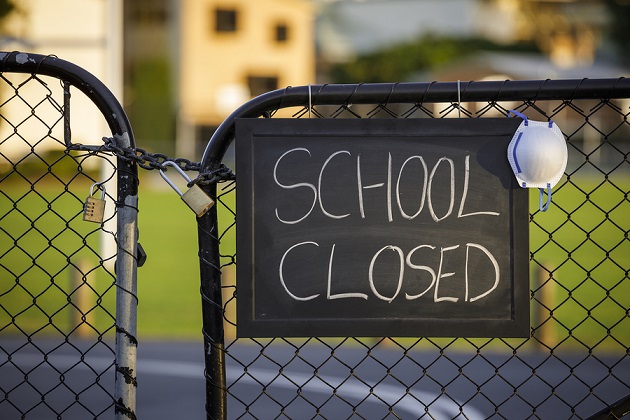 In-person learning has been canceled for most students for more than two months now, and for students most in need of emotional support, missing the classroom may be taking a big toll. "Even before the pandemic there were a lot of students at risk", says Dr. Glenn Albright, Ph.D. "Anxiety, depression, and substance abuse disorders can grow when a child is in a home where they don't feel safe."
In-person learning has been canceled for most students for more than two months now, and for students most in need of emotional support, missing the classroom may be taking a big toll. "Even before the pandemic there were a lot of students at risk", says Dr. Glenn Albright, Ph.D. "Anxiety, depression, and substance abuse disorders can grow when a child is in a home where they don't feel safe."
For students in these situations, school is often a way to get away from the stress at home. Experts say teachers can be supportive, providing a safe place for the child to learn, socialize, and play with other students. Teachers are also mandatory reporters of abuse or neglect, and can make a referral if they see the need for help. Now, many kids are expected to study and learn in an environment that may be unsafe, or abusive.
Dr. Albright runs a company that helps teachers spot these signs in students, called Kognito. Through simulations, it helps teachers identify students most at risk, and provides them with a game plan for opening the channels of communication. "It's important for teachers to ask the student how they're doing. Many times people will not volunteer their problems unless you ask them," says Dr. Albright. He says the markers are still the same to pinpoint problems, even from a distance. Attendance decline, content of writing and homework, decreasing grades, less interaction online, withdrawing, and changing engagement levels should trigger the teacher to focus more attention on that student.
But, how can a teacher give more attention from a distance? Dr. Albright says it can still be done. Teachers should try to log in to online classrooms early, and stay late, giving students who need it the chance for some one-on-one time. To help with structure, teachers can set up a weekly appointment with a child who may require extra attention. They should follow up with students who withdraw from virutal classes, and check in with parents and caregivers of students who have needed extra help in the past.
If possible, those parents and caregivers can also help out at home. Experts say offering structure in a time of uncertainty goes a long way, especially for young children, and those at risk. Wake up at the same time each day. Allot time for play, learning, and family time. Give the child the opportunity to talk about their concerns. Many are hearing scary things in the news, or discussed by family members. Parents should listen to the child, validate their concerns, and reassure them that they are safe at home. Dr. Albright says it's important for the child to feel understood and protected. Parents can also schedule time for fun together as a family, like sitting down and playing a board game. Singing is another way to deal with stress since it calms down the nervous system. Setting up karaoke may be a way to bring the family together. And physical exercise is also very important. Dr. Albright says yoga in particular is incredibly effective at treating PTSD and trauma.
Teachers can help students share with each other the different ways they've found to calm their stress. Some may be taking virtual vacations, listening to a new kind of music, drawing or painting. By sharing their success stories with the class, they may help another student looking for an outlet. And, at the very least, let the other students know they aren't alone in feeling stress right now.
Above all, Dr. Albright says the best thing teachers can offer students right now, is compassion. "Empathy, curiosity, wondering how the student is doing, understanding how they feel, and providing safety all come from compassion", says Dr. Albright. Something the world could use a lot more of right now.
Kim Lucey is a freelance journalist with more than a decade of experience in the field. Her career has included coverage of big breaking news events like the Sandy Hook school shooting, lockdown in Watertown, MA following the Boston marathon bombings, and Superstorm Sandy. Her in-depth reports have garnered awards, including a focus on treating mental health issues in children. Currently, she is a reporter at a television station covering the news across the Greater Boston Area with an appreciation for fact-finding and storytelling. Follow Kim on Facebook and Twitter.